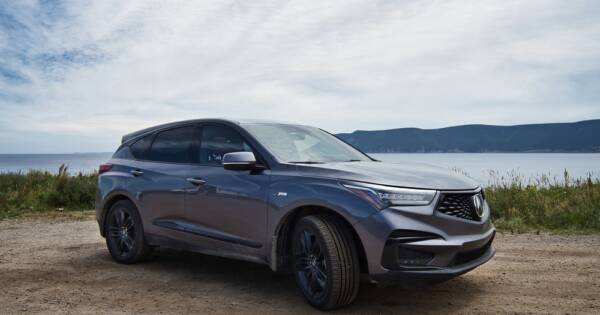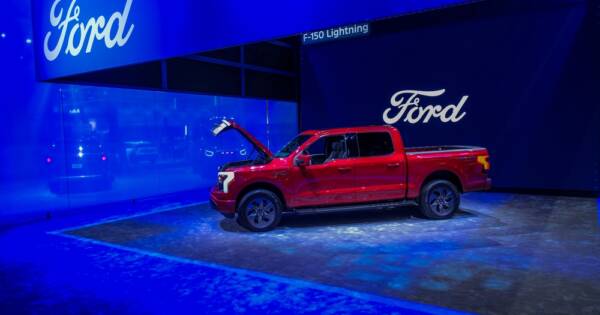Buying any car – used or new – is a major decision. It’s a good idea to learn as much as you can about a car before you make a commitment to it. Some models are generally reliable, but others can be expensive to maintain. Finding a car that suits your needs requires some reflection about your driving habits and annual mileage. By doing your homework ahead of time, you can secure the right car and avoid buyer’s remorse.
What To Know Before Buying Any Car
Whether you’re planning to finance a brand new vehicle or are looking for an affordable used car, learning the pros and cons of different makes and models (as well as their overall running costs) can help you avoid unexpected expenses.
Some cars are much more economical than this. Other vehicles consume far more gas, cost more in insurance, or have greater maintenance expenses. That makes it costlier to keep them on the road. The age of the car is just one part of the running cost equation.
How Much Will Insurance Cost?
Insurance companies price their policies based on their own risk assessments. The area you live, as well as your age, driving history, and credit rating all make a difference. Those factors are hard to change. However, one thing you do have control over is the type of car you drive.
Practical vehicles such as the Subaru Outback or Jeep Wrangler are usually much less expensive to insure than more fashionable options such as the Tesla Model S or a Lexus. In general, electric vehicles cost more to insure than traditional gas vehicles, since EVs are more expensive to repair if things go wrong.
How Economical Is It To Run?
Insurance is just one part of the cost equation when it comes to using a vehicle. Fuel economy (or battery range) matters too. Electric vehicles are cheaper to run, but at current prices, it can take almost a decade to recoup the extra cost of making such a purchase.
Hybrids and plug-in hybrids offer a good compromise, especially for drivers who make a lot of shorter journeys where the benefits of the battery are more likely to be felt. If you’re going to put in thousands of highway miles or take regular road trips, choosing the most economical car will save you a lot of money in the long run.
How Reliable Is It?
If you’re leasing, reliability may not be a major concern. After all, you have the opportunity to hand the vehicle back when it’s coming to the end of the manufacturer’s warranty period. If you want to keep the car long-term (or you’re buying used), reliability becomes much more important.
Some makes, such as Lexus, Toyota, Honda, and Kia are renowned for their reliability. There’s a lot of room for improvement in the overall SUV marketplace when it comes to reliability, however. Make sure there’s room in your budget to cover any repairs or maintenance that your chosen vehicle is likely to need.
Are Parts Easy To Find?
Many people keep a car on the road on a shoestring budget by doing their own maintenance. It’s fairly easy to do if you’re mechanically inclined and are confident in your ability to follow a Haynes Manual or YouTube video.
However, even self-maintenance can become expensive if you have an imported car or an older model that’s difficult to find spare parts for. This can make the vehicle much more expensive to take care of once it reaches the stage where it needs a new timing belt, clutch, or some other major replacement part.
Things To Consider When Buying a Used Car
Buying a used car can save you a great deal of money compared to buying a new vehicle. However, there are many more things that can go wrong with a used car. It can be a good idea to take someone with you to help you assess the condition of the car, especially if you aren’t sure what to look for in terms of mechanical faults.
Another option could be to pay a mechanic to come with you and give you an inspection. With any car more than a few years old, it’s likely the mechanic will find some issues. That’s not a deal breaker. However, they’ll be able to tell you if the car is in acceptable condition for its age.
How Many Previous Owners Has It Had?
You can tell a lot about a car by the number of owners it’s had. A classic “new driver car” with a smaller engine and cheap insurance may change hands many times over the course of its lifespan, when the driver is ready to upgrade.
A senior-friendly car such as the Honda CR-V or Kia Soul may be more likely to have just one or two owners. If a car has had one owner for a long time, then changed hands several times in the last couple of years, that could be a sign that each buyer has spotted an issue with the car and sold it (rather than deal with expensive repairs).
How Many Miles Does It Have?
Mileage is not always an indicator of condition, especially with cars designed for highway efficiency. However, every manufacturer recommends certain service or repairs be carried out at specific mileage levels. Some drivers get rid of cars just before hitting that mileage to avoid paying for potentially costly work.
Look at the service schedule for the type of car you’re thinking of buying. Then check whether it’s due (or overdue) for any important maintenance. In many cases, a well-maintained but high-mileage car could be a better bet than a low-mileage car that’s been neglected by its latest owner.
Does It Have a Full Service History?
A car with a full service history is likely to have been well taken care of — even better if every scheduled service was carried out by its dealer. With budget vehicles, it may be difficult to find an older model with a full service history. However, if the car was owned by an enthusiast, they might be able to present receipts for oil and other items that are normally part of a service, showing that they did the work themselves.
Avoid older vehicles with large gaps in their service history. It can be hard to tell whether any historic neglect has done lasting damage.
Has the Car Ever Been in an Accident?
It’s important to do a full vehicle history check before buying any used car. Every car has a Vehicle Identification Number (VIN). Any information about the car is recorded in government databases using the VIN. A history check can tell you:
- The vehicle’s specifications
- Owner/sale history
- Any liens on the vehicle
- Accident history
- Reported thefts
Make sure the VIN and the plates match on the history check. Sometimes, thieves will try to pass off stolen vehicles by changing the plates. Do not buy a car if the seller lies about the accident history or if there is an outstanding loan attached to it.
Why Is the Current Owner Selling?
If you’re buying from a private seller, ask them why they’re getting rid of the car. The way they answer this could give you a good idea of whether the car is a good deal. For example, it’s normal for someone to sell a learner car after a year, when their insurance premiums have dropped. They’re likely ready to upgrade to something better.
A young family selling a Honda Jazz after their parents have stopped driving would be a good sign, too. Someone who seems to change cars every few months, on the other hand, could be a dealer masquerading as a private seller, flipping cars with clear issues.
Always Be Willing To Walk Away
Don’t get emotionally attached to any car. If there’s something that doesn’t sound right, the price is too good to be true, or you take the car for a test drive and don’t like how it handles, don’t buy that car. Unless you’re buying a collectible, you’ll have plenty of other chances to get something similar.
Even used cars can be expensive these days. Make sure that what you’re getting is good value for money. If you think you’ll let yourself get talked into a bad purchase, take a level-headed friend with you to act as a second opinion.




